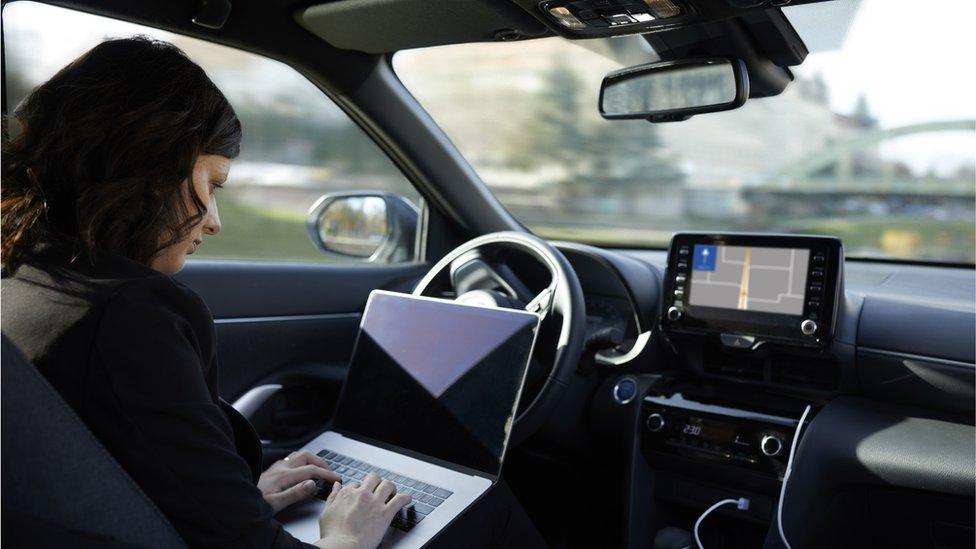Driverless cars: Self-driving cars on UK roads by 2025, says report
- Published
- comments

Driverless cars could be on the road by 2025
How would you like to get to school in a vehicle that drives itself?
It might sound like something from science fiction, but, according to a new government report, fully self-driving vehicles could be on UK roads by 2025.
Some cars, coaches and lorries with self-driving features could even be on motorways in the next year, the Department for Transport has said.
Government plans include new laws to ensure the vehicles are safe. Read on to find out more.
What are self-driving cars?
A new driverless car unveiled in China
Self-driving or driverless cars are vehicles capable of being on the road without a human in control.
They use a combination of lasers, cameras and radar to recognise objects, like other cars and pedestrians.
There are different levels of computer control. Some cars have automated features which can be turned on or off by the driver, but other cars wouldn't need a driver's input at all.
There are cars with some self-driving features, like vehicles made by Tesla, already on UK roads.
What are the advantages of driverless cars?
The Department for Transport says there are advantages to driverless cars including helping to connect rural communities and reducing isolation for people that are disabled.
It says some of the uses in the future could include direct services for people to get to schools or medical appointments.
Supporters also say driverless cars could be safer as human error is responsible for over 80% of collisions in the UK.
What about safety?
This illustration shows self driving cars moving through the city using AI to scan the surrounding area, but many people have concerns about machine learning
One of the main concerns about having vehicles drive themselves is safety.
Government plans state self-driving vehicles should be the same as a "competent and careful" human driver.
Under new laws, the government says manufacturers would be responsible for the vehicle's actions when self-driving.
This means the human in the vehicle would not be held responsible for any incidents related to driving while the vehicle is in control of itself.
The Centre for Data Ethics and Innovation (CDEI) - a government expert organisation - says on average driverless cars are safer than humans.
But it warns that the public may have little tolerance for crashes that are seen as the fault of "faceless technology companies".
A report by the CDEI bought up some other risks, including the potential for bias in algorithms controlling the cars.
An algorithm is basically a set of rules or instructions which a computer can use to help solve a problem or come to a decision about what to do next.
Algorithm bias is when a computer system is prejudiced because of errors in its machine learning.
The CDEI warns that some groups, such as wheelchair users, may be underrepresented in data used to train the software algorithms which control the cars.
The report also says that self-driving cars should be clearly identified, and that "people have a right to know what sort of agents they are sharing the road with".
- Published9 August 2019
- Published23 November 2018
